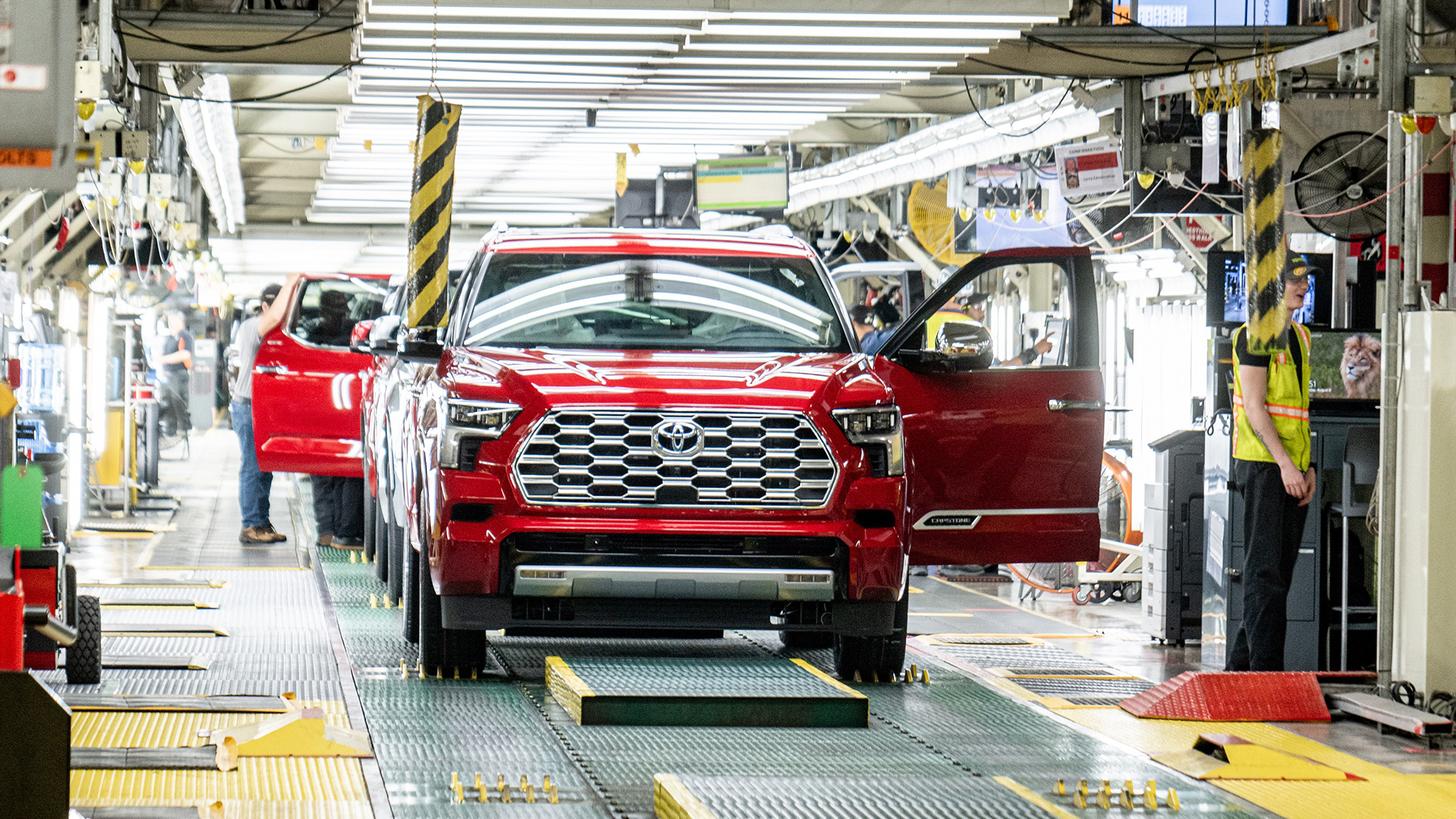

All of the Big Three Detroit automakers struck historic deals with the United Auto Workers (UAW) union, raising pay, providing cost-of-living wages, and improving retirement benefits. However, there won’t be similar deals made with other automakers that build cars in the U.S., because their workers are not unionized. After the UAW strike and its subsequent new contracts, Toyota is giving its factory workers raises, which seems like a not-so-subtle way of asking those workers not to organize.
The UAW is already discussing the idea of expanding into other automakers in the U.S., namely Tesla. In fact, a story from Bloomberg this week citing an individual familiar with the efforts stated that a UAW organizing committee is active in the EV maker’s Fremont plant “talking to coworkers about the advantages of collective bargaining.” What’s more, Toyota, Volkswagen, and other brands could be next.
“When we return to the bargaining table in 2028, it won’t just be with a Big Three, but with a Big Five or Big Six,” said UAW President Shawn Fain on Sunday.
According to pro-union publication Labor News, Toyota increased wages at its Alabama and Kentucky factories. The new top pay rate at both factories is said to have been raised $2.94 to $34.80 for production employees, and $3.70 to $43.20 for skilled trades. The Drive reached out to the company for more information and will update this story should we get more info.
Fain made it clear that he and the UAW want to organize non-union labor across the U.S., calling the recent deal with Detroit “a turning point in the class war that’s been raging in this country for the past 40 years.”

Toyota hasn’t said whether the UAW deal has anything to do with its pay wages. “We value our employees and their contributions, and we show it by offering robust compensation packages that we continually review to ensure that we remain competitive within the automotive industry,” said Chris Reynolds, executive vice president of corporate resources for Toyota Motor North America, per Axios.
Don’t be surprised, however, if other automakers in the U.S. increase wages following recent events, such as Honda, Volkswagen, and Tesla.